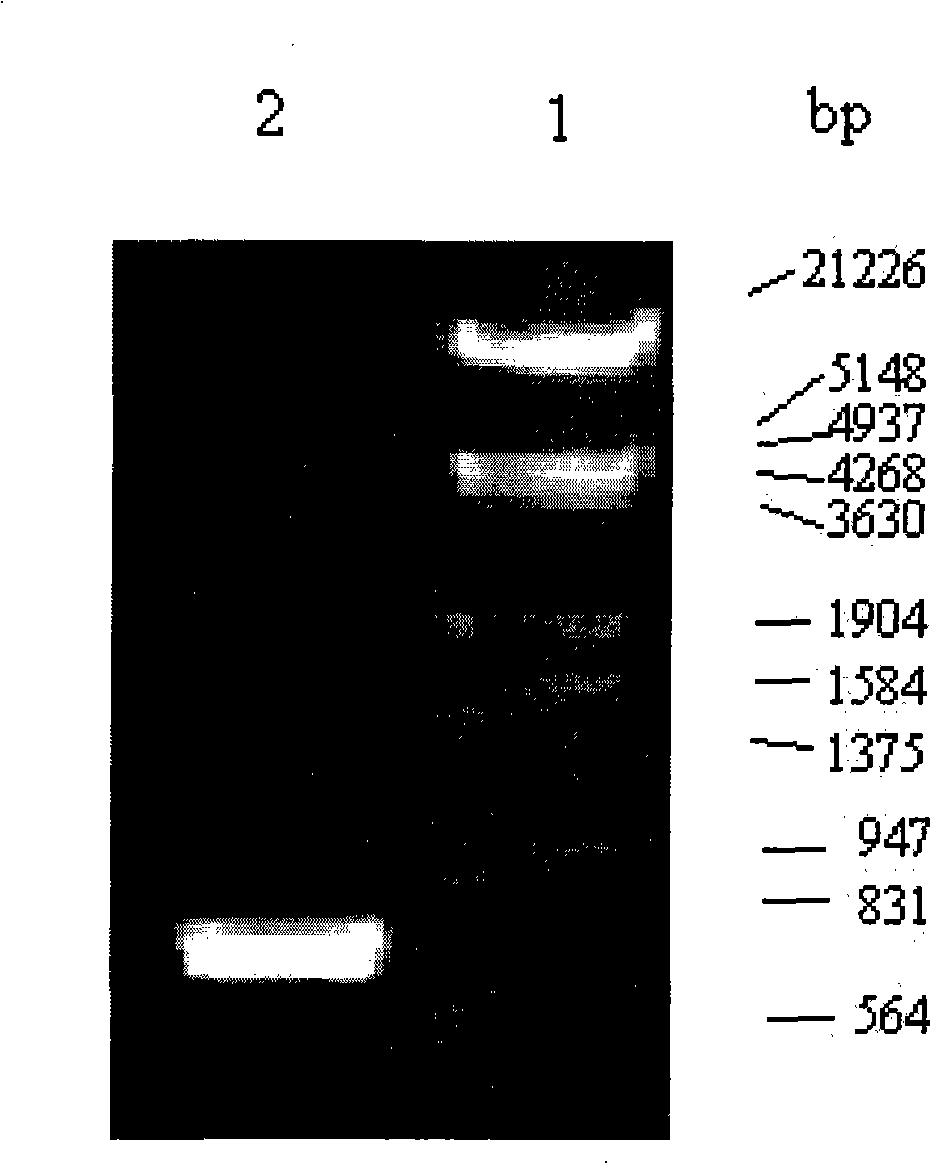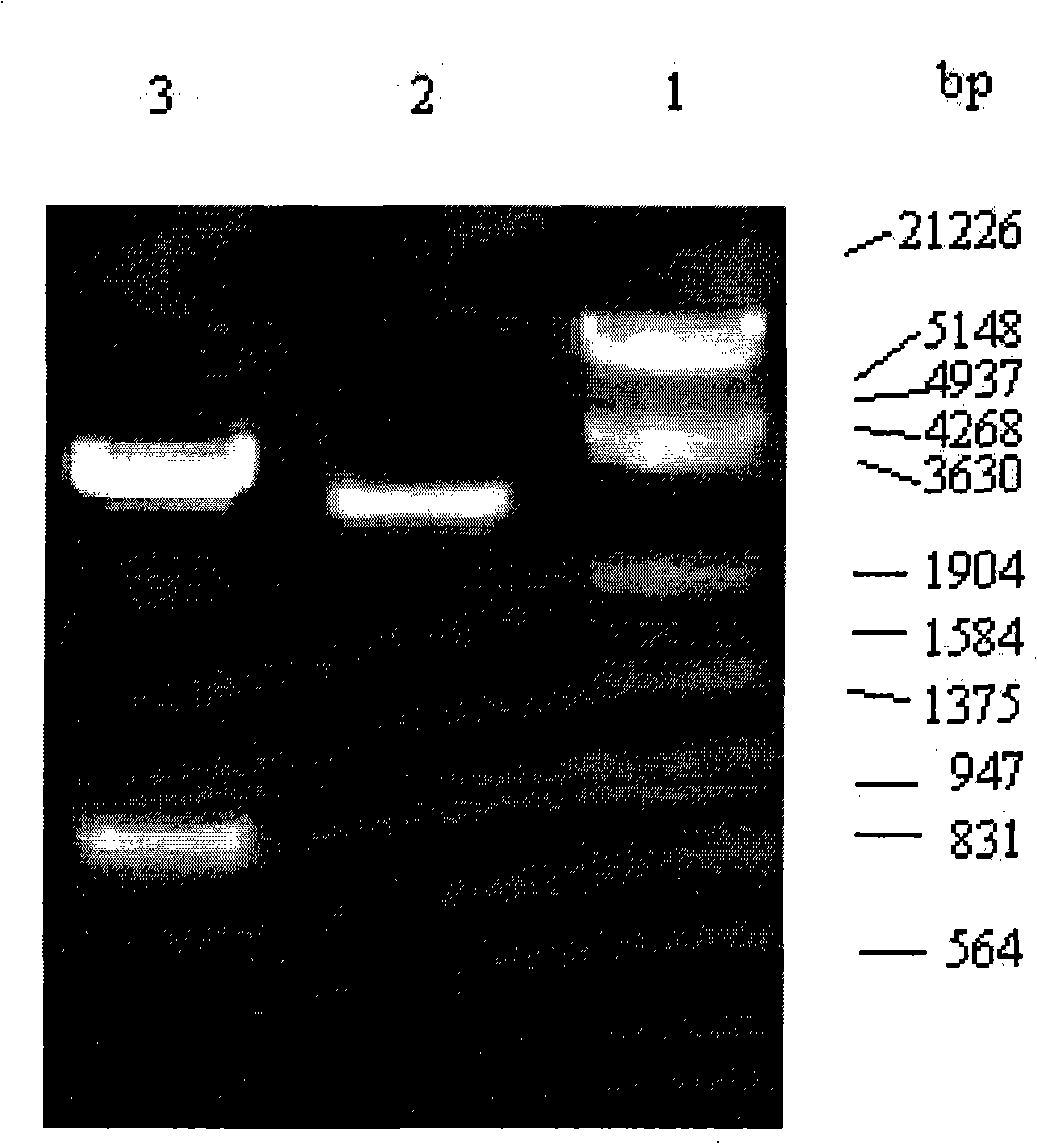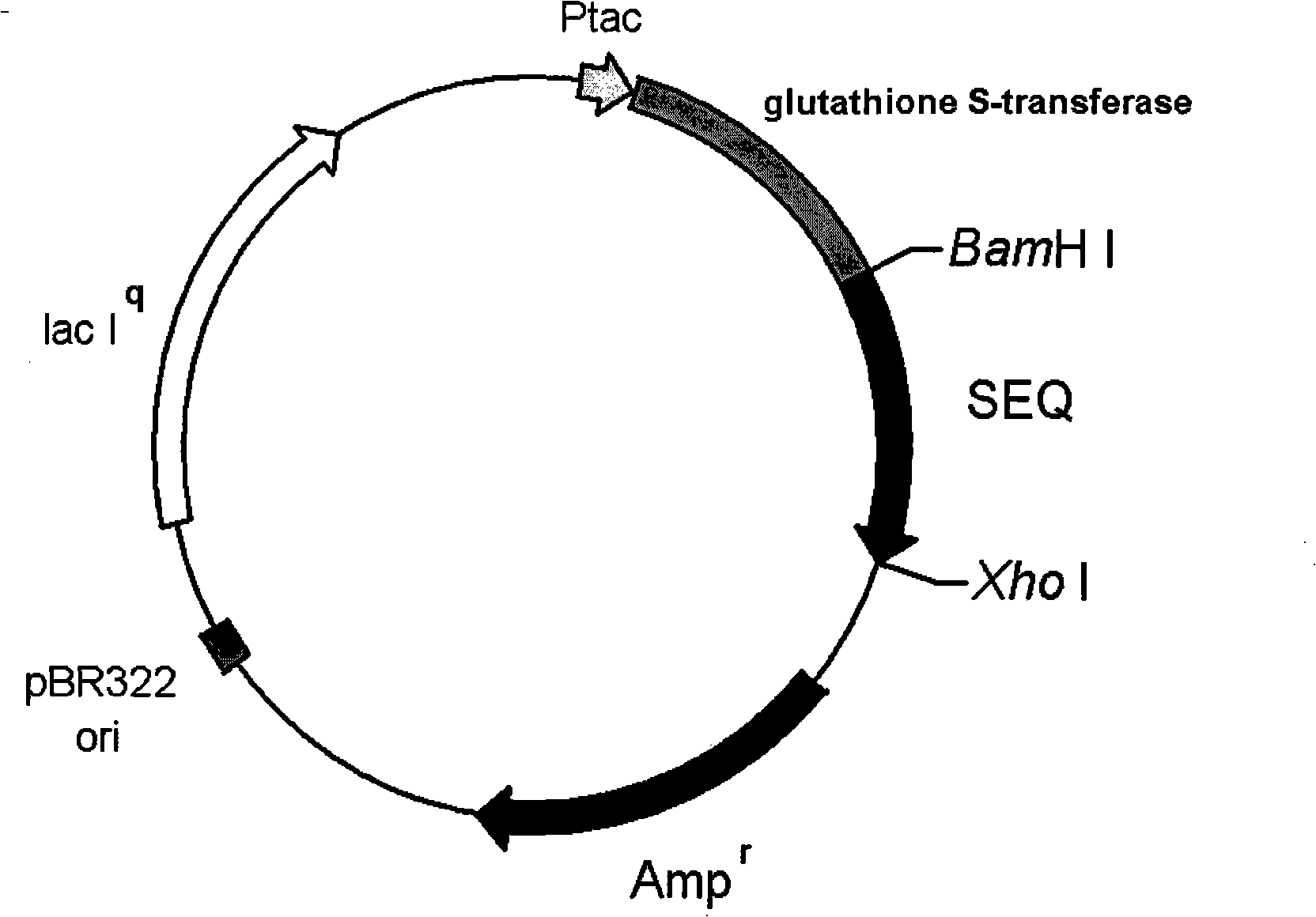Recombined staphylococcus aureus enterotoxin Q oral preparation and application thereof
A technology of Staphylococcus aureus enterotoxin and Staphylococcus enterotoxin, applied in the field of bioengineering, can solve the problems of lack of strict quality control standards, simplicity, and easy introduction of other protein impurities
- Summary
- Abstract
- Description
- Claims
- Application Information
AI Technical Summary
Problems solved by technology
Method used
Image
Examples
Embodiment 1
[0048] Embodiment 1: PCR amplification of the gene sequence encoding the mature peptide of SEQ protein containing restriction sites:
[0049] Design the following primer sequences:
[0050] SEQ ID NO.3: at g gat cc g atg tag ggg taa tc (the underlined part is the restriction site of BamH I)
[0051] SEQ ID NO.4: gc c tcg ag t tat tca gtt ttc tca t (the underlined part is the Xho I restriction site)
[0052] The Staphylococcus aureus (FRI 1230) genome was used as a template to amplify the mature peptide gene fragment seq of Staphylococcus aureus enterotoxin SEQ.
[0053] The conditions for PCR amplification are as follows. The gene fragment encoding the mature peptide of SEQ is amplified, wherein each gene fragment has a BamH I restriction site at the 5' end and an Xho I restriction site after the terminator at the 3' end.
[0054] PCR system:
[0055] h 2 O: 60 μL
[0056] Buffer(10×): 10μL
[0057] Mg 2+ (25mmol / L): 8μL
[0058] BSA (5mg / mL): 10μL
[0059] Primer-...
Embodiment 2
[0070] Example 2: Construction of recombinant plasmid pGEM-T-SEQ encoding enterotoxin SEQ protein mature peptide gene seq containing restriction sites:
[0071]The gene fragment encoding the mature peptide of SEQ protein with restriction sites obtained by PCR amplification was cloned into the pGEM-T plasmid to construct the pGEM-T-SEQ recombinant plasmid, and the above recombinant plasmid was transformed into E. coli DH5α for amplification. Extract the above recombinant pGEM-T-SEQ plasmid, send it for sequencing after enzyme digestion and identification, and the sequencing results show that the gene sequence encoding the mature peptide of the SEQ protein with the enzyme digestion site obtained above is different from the corresponding gene sequence on GenBank except at the 5' The rest of the site is completely consistent except for the addition of a restriction site, and the corresponding amino acid sequence of the enterotoxin Q mature peptide has only two more amino acids (Gly...
Embodiment 3
[0072] Example 3: Construction of the pGEX-4T-1-SEQ recombinant expression plasmid containing the gene encoding the mature peptide of SEQ with a restriction site:
[0073] The pGEM-T-SEQ recombinant plasmid and the pGEX-4T-1 plasmid obtained in Example 2 containing the gene fragment encoding the mature peptide of the SEQ protein obtained in Example 2 were respectively digested with BamH I and Xho I. The gene fragment encoding the mature peptide of SEQ containing the restriction site and the large fragment of the digested product of the pGEX-4T-1 plasmid after digestion were respectively recovered and ligated to construct the expression plasmid pGEX-4T-1-SEQ. The above-mentioned recombinant expression plasmid was transferred into Escherichia coli DH5α to amplify and extract the plasmid, and after BamH I and Xho I digestion and identification, the result showed that the target gene fragment had been inserted into the vector plasmid, and the electrophoresis results were shown in F...
PUM
 Login to View More
Login to View More Abstract
Description
Claims
Application Information
 Login to View More
Login to View More - R&D
- Intellectual Property
- Life Sciences
- Materials
- Tech Scout
- Unparalleled Data Quality
- Higher Quality Content
- 60% Fewer Hallucinations
Browse by: Latest US Patents, China's latest patents, Technical Efficacy Thesaurus, Application Domain, Technology Topic, Popular Technical Reports.
© 2025 PatSnap. All rights reserved.Legal|Privacy policy|Modern Slavery Act Transparency Statement|Sitemap|About US| Contact US: help@patsnap.com



